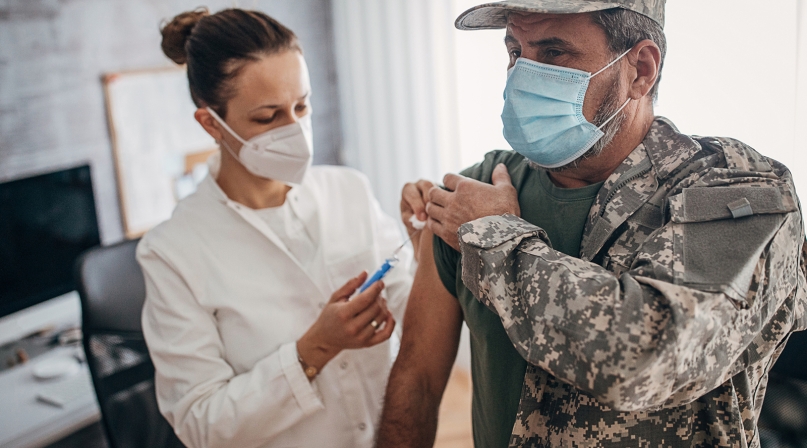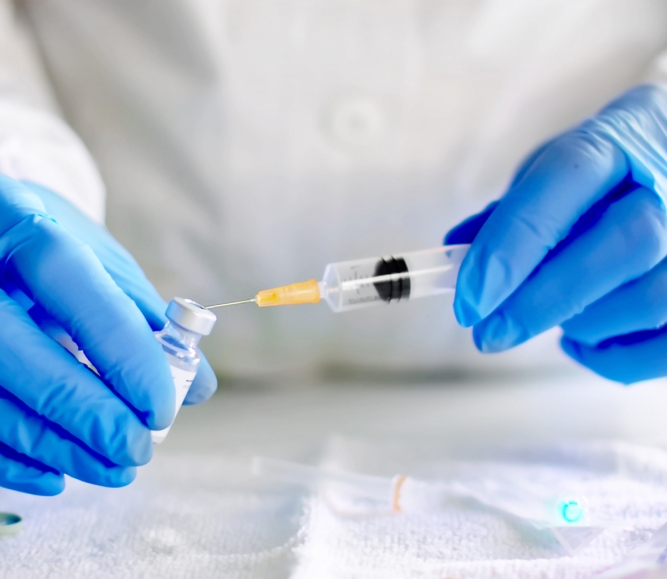Congress passes legislation to expand VA vaccine eligibility
Author
Upcoming Events
Related News

On March 19, the U.S. House passed the Strengthening and Amplifying Vaccination Efforts to Locally Immunize all Veterans and Every Spouse (SAVE LIVES) Act, legislation sponsored by Senators John Boozman (R-Ark.), Jon Tester (D-Mont.), Jerry Moran (R-Kansas) and Richard Blumenthal (D-Conn.) that unanimously passed the Senate on March 17. The SAVE LIVES Act amends house-passed legislation sponsored by Reps. Mark Takano (D-Calif.) and Mike Bost (R-Ill.) President Biden is expected to sign the legislation in the coming days.
The SAVE LIVES Act makes important changes to allow the Department of Veterans Affairs (VA) to provide no-cost COVID-19 vaccination services to all veterans (including veterans without compensable service-connected disabilities and veterans who have incomes above VA’s threshold) to the extent that such vaccines are available. The bill further expands VA’s authorities to vaccinate caregivers and spouses of veterans who are enrolled in various VA home-based and long-term care programs. This represents a shift from current rules only permitting VA medical centers to administer vaccines to veterans already enrolled in VA health care services and to caregivers specifically registered in the Caregiver Assistance Program.
Under the legislation, the number of individuals eligible for vaccines from VA will jump from 9 million to roughly 33 million (the department has currently vaccinated 1.4 million individuals since mid-December). The bill also urges the U.S. Department of Health and Human Services to adjust VA’s vaccine allocation based on this increased eligibility pool, as much as the supply chain allows. The legislation does not require veterans or their family members to get a vaccine through VA facilities, but allows them the option to receive it when doses are available.
As gatekeepers of the local health and human service safety net, county governments are playing an essential role in the development and implementation of vaccination programs. By empowering the VA to vaccinate additional veterans, the SAVE LIVES Act will free up county resources to equitably distribute vaccines to residents. NACo continues to advocate for direct vaccine dosage allocations to counties or county owned facilities.
Update: On March 24, President Biden signed the SAVE LIVES Act into law.
Resource
COVID-19 Vaccine Toolkit for Counties

Related News

House Agriculture Committee introduces 2026 Farm Bill
On February 13, House Agriculture Committee Chairman G.T. Thompson (R-Pa.-15) introduced the House version of the 2026 Farm Bill, the Farm, Food, and National Security Act of 2026.

Drug tracking software helps counties identify trends, save lives
Florida counties are using an artificial intelligence tool called Drug TRAC to track and report drug trends, with the aim of providing quicker outreach and saving lives.

White House Executive Order establishes national substance use disorder response
On January 29, the White House issued an Executive Order (EO) establishing the Great American Recovery Initiative, a new federal effort aimed at coordinating a national response to substance use disorder (SUD).
